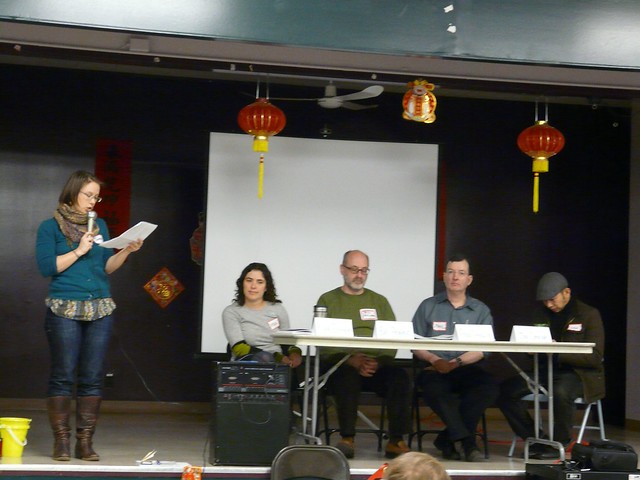
Three dozen seniors living on fixed incomes in the Lions Manor building at 6th and Main have been served with a 45% rent increase. In a city with an ever-worsening housing crisis, the tenants could be faced with the possibility of having nowhere to go.
The Mount Pleasant Housing Society (MPHS), a non-profit organization set up by the Mount Pleasant Lions Club, has applied to the Residential Tenancy Branch for permission to exceed the annual rent-increase limit by more than ten times, arguing that rents at Lions Manor are below market value. In reality, the 36 residents of Lions Manor already pay between 35-45% of their income on rent, which is higher than the one-third cut-off rate defined by the City of Vancouver as affordable.*
The rent-increase hearing is scheduled for today (February 10) at the Residential Tenancy Branch. The hearing will take place by phone, adding even more anonymity to the fact that the building owners have not yet met face-to-face with the seniors to discuss the increase. Despite pressure to revoke their application, including a rally outside the Lions Manor yesterday, the Mount Pleasant Housing Society has confirmed that it will pursue the rent increase as planned.
In an extensive conversation with The Mainlander, Mount Pleasant Housing Society president Christine Norman confirmed that if the hearing comes down in favor of the tenants, her organization will appeal the decision. “We will do whatever we have to do to win the case,” said Norman by phone.
Rents have already increased within the allowable legal limit for at least the past two consecutive years at the Lions Manor. This year, however, the owners are seeking a special exemption from the Residential Tenancy Act (RTA) beyond its allowable yearly limit of inflation-plus-two-percent. Under Section 23(1)(a), the geographic area loophole of the RTA, the Mount Pleasant Housing Society is applying for an additional 45% rent increase. The section reads:
A landlord may apply under section 43 (3) of the Act [additional rent increase] if one or more of the following apply: (a) after the rent increase allowed under section 22 [annual rent increase], the rent for the rental unit is significantly lower than the rent payable for other rental units that are similar to, and in the same geographic area as, the rental unit.
This loophole puts all renters in gentrifying areas at risk. The neighborhood surrounding Lions Manor is part of what the Vancouver planning department calls the Main Street revitalization corridor, stretching from Alexander Street south to 36th Avenue. The advancement of the condo frontier up Main Street has widened the rent gap between the ground rent and highest-best use capitalized rent, increasing the return on capital in the area. As such, market rents bear no reflection of the actual costs of tenancy but rather of the opportunity cost of capital. The Residential Tenancy Act exists to protect renters from the most exploitative aspects of the housing market, but Section 23(1)(a) cancels out the very purpose of the Act.
MPHS states that it needs a 45% revenue increase to funds its renovations, although Norman would not speak further for fear of “jeopardizing” her case before the Residential Tenancy hearing. According to Norman, the building should have been repaired 10 years ago. Balconies were left to decay by the Lion’s Club and only repaired when they became a safety hazard.




